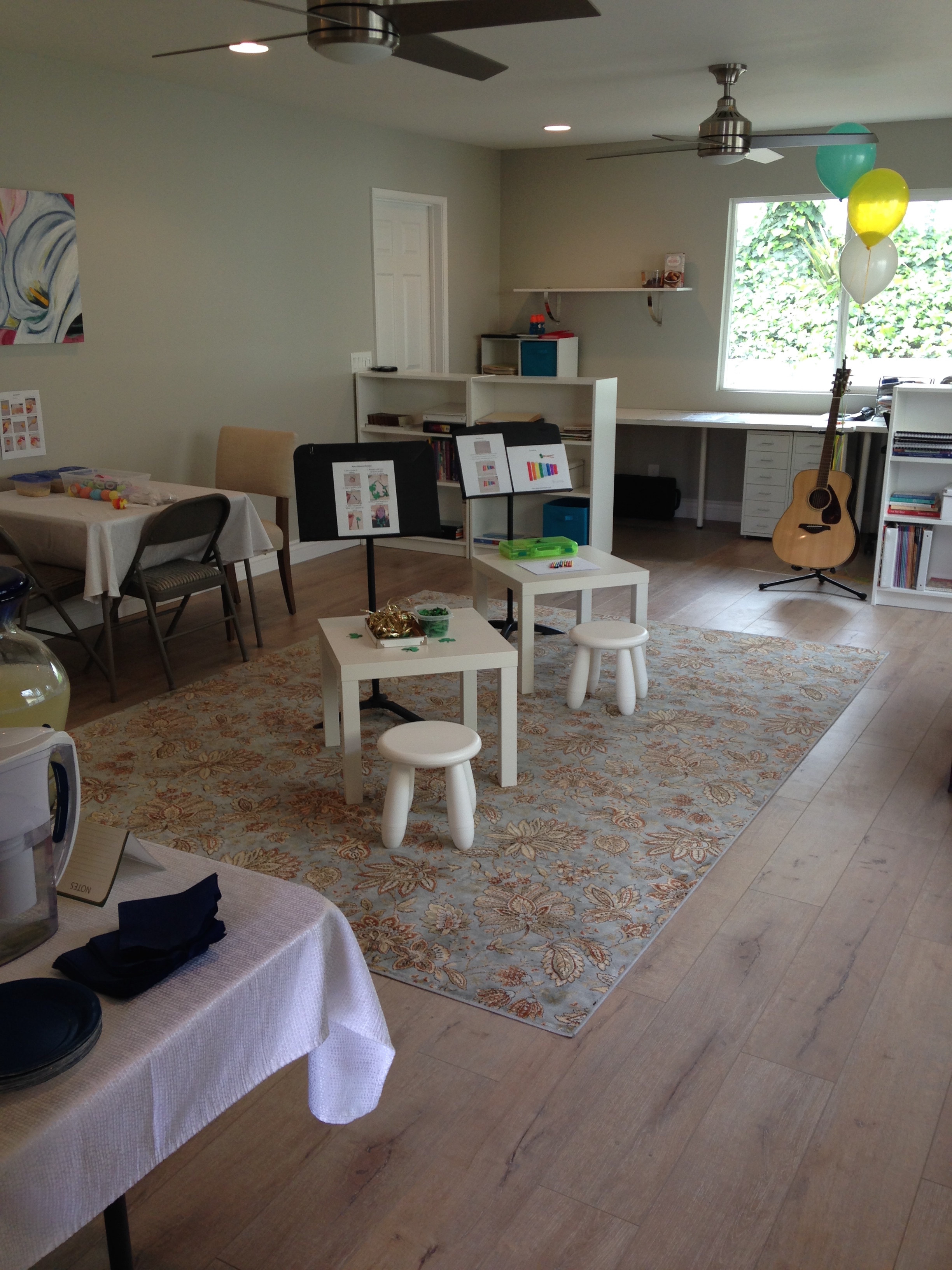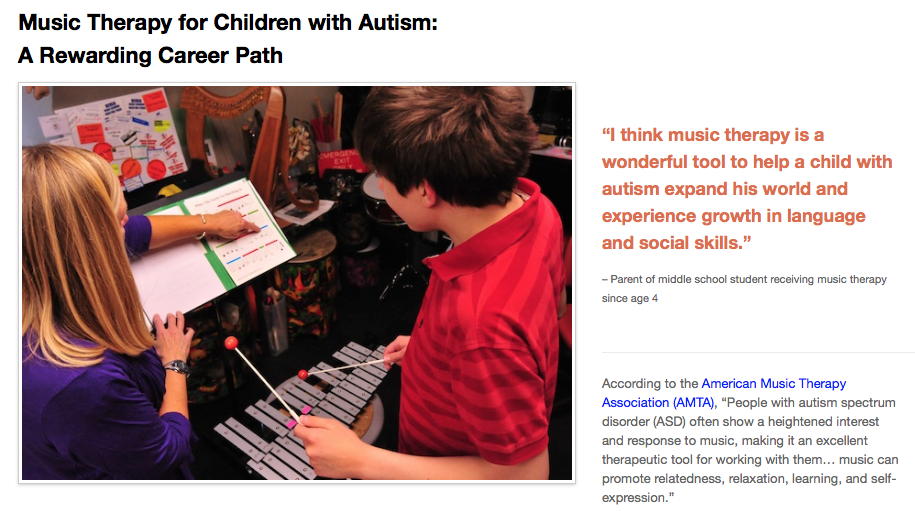If you’ve seen or worked with a child with Autism, it’s very likely that you’ve encountered a child who has issues processing information. I’ve worked with children who need a lot of input (Hypo-Reactive Nervous System): they might enjoy really deep pressure and tend to enjoy very loud noises. I’ve also worked with the opposite, where a kiddo becomes over-aroused from too much input (Hyper-Reactive Nervous System): doesn’t like to be touched, is over sensitive to certain textures, and loud noises bother them. As a music therapist, it is important to get to know the client, how they process their environment, and plan sessions accordingly.
Here are some great ways to help a child cope and benefit from school/therapy who might be struggling with SPD:
- Set routines/schedules (Keep things consistent with a good flow)
- Use visuals (I cannot stress the importance of this while working with any child with ASD)
- Use timers (Set them up for success: First we will do 5 minutes of work and Then you get to play)
- Provide fidget toys/breaks (I have a bin of toys I keep handy with squeeze balls, play-doh, etc.)
I came across this flier (link attached) from North Shore Pediatric that perfectly describes and outlines Sensory Processing Disorder. I’m actually going to print it and keep it to continuously refer to as new clients come in for treatment.








